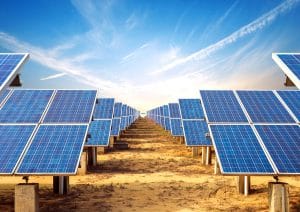The practice of forcing industries to cross-subsidize household consumers’ power tariffs is leading to an unprecedented shift among businesses towards captive solar power with some committing to go fully reliant on clean energy.

Cost of producing solar power, which was over Rs12 per kilowatt hour (unit) in 2010, has dropped sharply over the years.
The latest auction, which was held in November, saw takers for solar power projects willing to sell power at Rs3 a unit.
The fall in solar power generation cost has now made it attractive for businesses to go for captive solar power plants, including rooftop plants that supply power cheaper than from the grid, which is expensive on account of the cross-subsidy that industrial consumers are saddled with.
Businesses, especially in the manufacturing sector, have long been complaining of high cost of power, exorbitant tax on diesel and escalating cost of capital as factors that render them less competitive in global markets where their peers enjoy low or negative cost of capital and in some cases, subsidies.
Multilateral agencies such as International Finance Corp. (IFC), the private investment arm of World Bank Group, US Exim Bank, the United States Agency for International Development (USAID), the Japan International Cooperation Agency and Germany’s KFW are bullish on India’s rapidly expanding renewable energy industry for investment opportunities.
IFC on Thursday announced an equity investment of $125 million in Hero Future Energies Private Ltd., a clean energy firm, for a minority stake. Tandon said that IFC does not invest in coal-based thermal power because of its commitment to climate change goals.
Companies like Apple Inc., IKEA Group, Nokia Oyj, Infosys Ltd and Tata Motors Ltd are among those committed to becoming fully reliant on clean energy.
India has a target of putting in place 175 gigawatt (GW) of renewable power capacity by 2022, out of which 100 GW is to come from solar. At the moment, the country has about 8.7 GW of solar power capacity.
One hurdle that companies face in going fully reliant on clean energy is that storage of energy is a costly proposition, which makes them rely on stable power from the grid for a significant part of their energy consumption when renewable energy is not available. Singhi of Dalmia Cements said that once power storage becomes a viable option, the company will be fully run on clean energy.
By Baishakhi Dutta


























